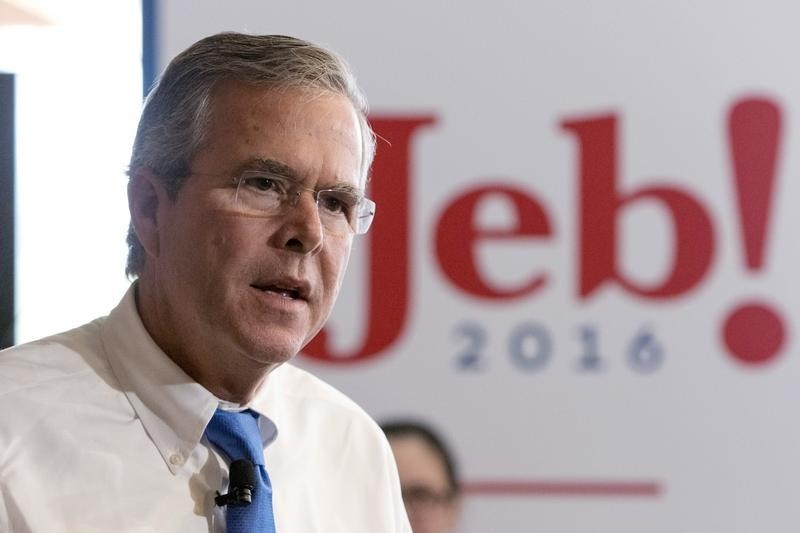Investing.com’s stocks of the week
By Doina Chiacu
WASHINGTON (Reuters) - Republican presidential candidate Jeb Bush on Tuesday proposed reforms to Medicare and Social Security that use the private sector to help pay for older Americans' health and living expenses after retirement and cut benefits to the wealthy.
Bush would reform the costly Medicare health insurance program for the elderly by providing "premium support" that would give senior citizens a fixed amount for guaranteed coverage options.
The approach, which Bush said has been supported by Republican Representative Paul Ryan and other "courageous conservatives," calls for a system of subsidies for seniors to buy coverage from private insurers or a scaled-back Medicare.
"The government will base its payments on the average price of those competing plans," Bush said. "And premiums will be lower for seniors by 6 percent on average.
The former Florida governor said he would lower the government subsidies for wealthier seniors and create a tax-free health savings account, or HSA, to help older Americans cover out-of-pocket health expenses.
On Social Security, Bush advocated changes so that higher-income earners who can afford to save for retirement get a smaller benefit check when they stop working, but said he would increase the minimum Social Security benefit.
Bush said that, without reforms, the programs will run out of money and benefits will be cut. Medicare and Social Security consume the largest portion of federal spending, and Bush said that that spending will more than double by 2040 without changes.
"If we do not have an honest conversation about what it will take to protect Medicare and Social Security, we fail seniors and we will fail the next generation of Americans," he said.
Previous efforts to reform Social Security in the United States have made little progress, even as worries have increased that the program's trust fund could be depleted within decades.
Among Bush's fellow Republican candidates for the 2016 presidential nomination, New Jersey Governor Chris Christie has advocated cutting Social Security benefits for the wealthy.
Bush's plan calls for eliminating the payroll tax for seniors at age 67 and adjusting benefits for seniors who retire early or work past retirement age. He would gradually increase the Social Security retirement age starting in 2022 so that workers will become eligible for full benefits at age 70 in 2058.
Bush said his plan would encourage small businesses that cannot contribute to employee retirement plans to set up private retirement savings plans for their workers.
